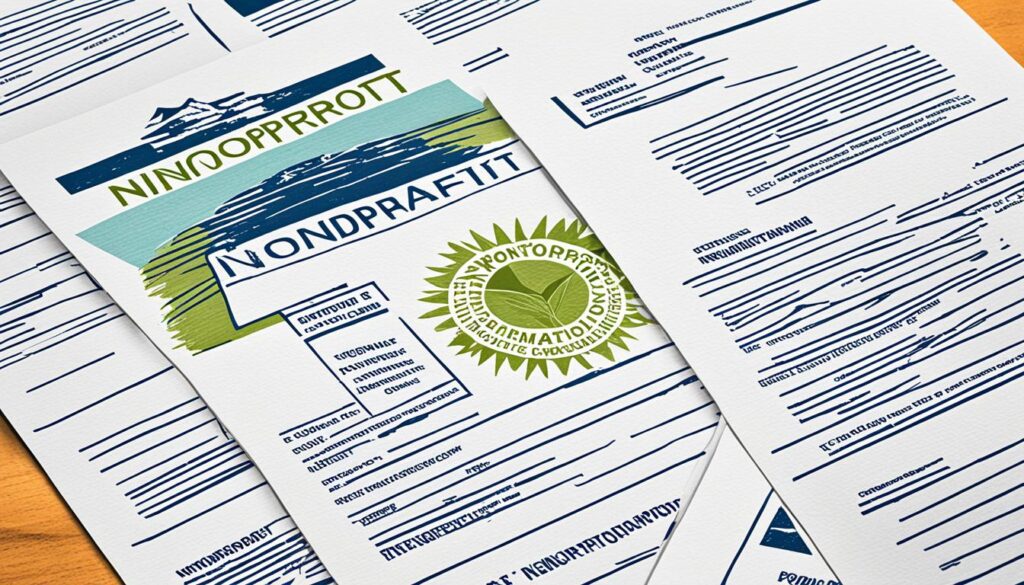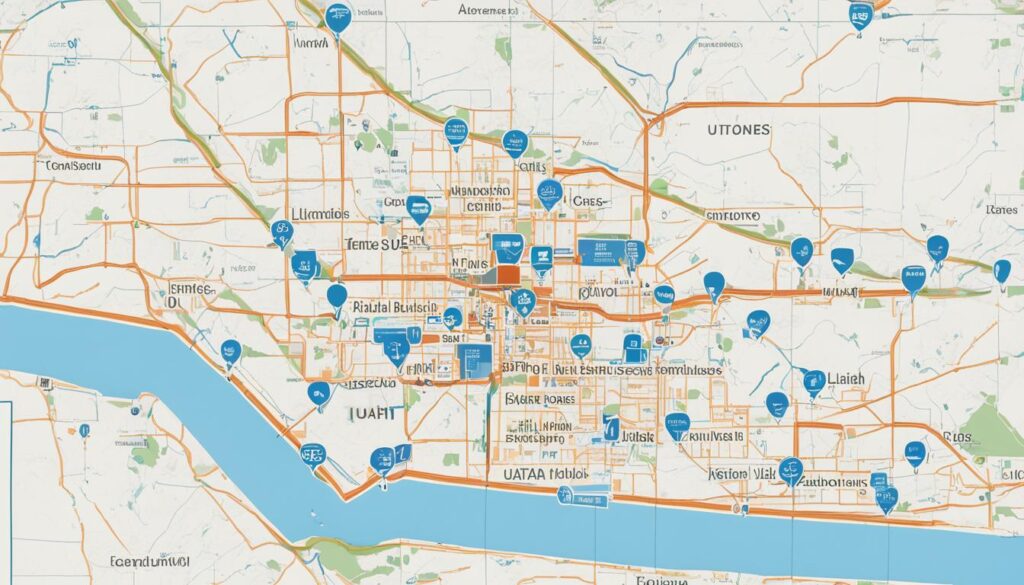Nonprofit organizations are key to our communities. They help charities, schools, and many others. But, figuring out if you need a license for your nonprofit can be confusing. You might ask if nonprofits need the same licenses as businesses that make a profit. The answer is, nonprofit licensing and registration are important steps for your organization.
Nonprofits must follow the same laws as businesses. This means getting the right licenses and registrations. If you don’t, you could face big fines. So, it’s smart to check with your local government about what you need to do.
Key Takeaways
- Nonprofits often need business licenses to operate legally
- State and local laws dictate specific licensing requirements
- Failure to obtain proper licenses can result in penalties
- Consult local authorities for accurate information
- Licensing helps maintain transparency and trust
Understanding Nonprofit Organizations and Their Legal Status
Nonprofit organizations are key to society, aiming to help others without making a profit. They follow special laws and rules that make them different from regular businesses. These rules help them focus on their goals.
Definition of a nonprofit organization
A nonprofit is a group made to help the public, a certain group, or its members. They don’t make money for owners or shareholders. Any extra money goes back into their work. Knowing the law is key for them to stay legal and work well.
Types of nonprofit organizations
There are many kinds of nonprofits, each with its own goal:
- Charitable organizations
- Religious institutions
- Educational entities
- Scientific research groups

Differences between nonprofits and for-profit businesses
Nonprofits and for-profit companies have different goals and structures. Nonprofits aim to achieve their mission, not make profits. They don’t have stock or shareholders. They need to file special papers and follow strict rules. Even churches must follow these rules to stay legal.
It’s important to know these differences if you want to start or run a nonprofit. Learning about nonprofit laws helps your group stay legal and keep its tax-free status. Unlike LLCs, which protect owners, nonprofits need their own licenses and registrations to be legal and achieve their goals.
Does a Non Profit Need a Business License?
Many nonprofits wonder if they need a business license. Yes, they often do. Most places require nonprofits to get a business license, known as a Business Occupational Tax Certificate. This is needed if the organization has a physical spot or does business there.
To figure out if your nonprofit needs a business license, talk to your local government. Nonprofits might not have to pay occupation taxes, but it’s smart to check with local officials. Remember, you’ll need to renew your business license every year.
Nonprofit operations permits are also important. They make sure your group follows local laws and can change based on what you do. For instance, if your nonprofit has a thrift store, you might need extra permits for retail.
Just because you’re tax-exempt doesn’t mean you’re off the hook for licenses. Even small side businesses need the right permits, and nonprofits are included. It’s safer to get the permits you need to avoid legal trouble later.
- Check with local government offices for specific requirements
- Inquire about potential tax exemptions for nonprofits
- Renew your business license annually
- Investigate additional permits based on your nonprofit’s activities
By following local laws, your nonprofit can focus on its mission without legal worries. Remember, laws can change, so it’s smart to check your licensing status often.
State and Local Government Requirements for Nonprofits
Starting a nonprofit can be complex. Each state has its own rules for licensing. Let’s look at the main steps you need to follow.
Registering with the Secretary of State
Your first step is to register your nonprofit with your state’s Secretary of State office. This means filing articles of incorporation and paying a fee. The paperwork varies by state, so check your local requirements carefully.

Obtaining State-Specific Fundraising Registrations
Many states require nonprofits to register before they can ask for donations. This process often includes:
- Submitting an application
- Paying registration fees
- Providing financial reports
- Meeting annual renewal deadlines
Remember, these requirements can differ significantly from state to state.
Additional Tax Exemption Registrations
Beyond federal tax exemption, you may need to apply for state and local tax exemptions. This can include sales tax, property tax, and sometimes income tax exemptions. Some states automatically recognize federal tax-exempt status, while others require separate applications.
You might also need to register for unemployment insurance and report any lobbying activities. The process of getting a nonprofit licensed can be complex. But, with thorough preparation, your organization can succeed.
The Process of Forming a Nonprofit Organization
Starting a nonprofit organization takes several steps. First, you file Articles of Incorporation in your state. This document tells about your organization’s goals and setup. It officially starts your nonprofit.
Then, you must choose a registered agent. This person or group gets official papers for your nonprofit. Some places need approval from certain agencies before you can file, so check your local laws.
After forming your nonprofit, get an Employer Identification Number (EIN) from the IRS. This number is key for taxes and opening bank accounts.
- File Articles of Incorporation
- Appoint a registered agent
- Obtain necessary approvals
- Apply for an EIN
Getting tax-exempt status is the last step in registering your nonprofit. This can be hard and slow. Many groups hire tax experts to help with paperwork and follow IRS rules.
But, starting a nonprofit is just the start. You must keep good records, file yearly reports, and follow rules to stay in good standing.
Tax-Exempt Status and Its Implications
Getting tax-exempt status is a big deal for nonprofits. It’s not easy to get. You have to work hard for it. Let’s look at the steps and what it means for your group.
Applying for 501(c) Status with the IRS
To get tax-exempt, you must apply for 501(c) status with the IRS. You’ll need to fill out forms and share details about your nonprofit’s goals and work. This is a key part of following the law for nonprofits.
State and Local Tax-Exempt Requirements
But don’t stop with the IRS. States and local areas have their own tax exemption rules. You might need to file more paperwork for these levels too. It’s smart to check your local laws to make sure you’re following them.
Ongoing Compliance for Maintaining Tax-Exempt Status
Getting tax-exempt is just the beginning. To keep it, you have to follow certain rules. These include having annual meetings, keeping records, and filing reports. Keep up with these tasks to keep your nonprofit in good standing and tax-exempt.
FAQ
What is a nonprofit organization?
Do nonprofits need a business license?
What are the state and local government requirements for nonprofits?
How do you form a nonprofit organization?
How do nonprofits obtain tax-exempt status?
Author
-

David Nguyen is an expert in business licensing, with extensive knowledge in local and international regulations. His expertise is crucial for businesses seeking guidance on compliance and licensing strategies.
View all posts



